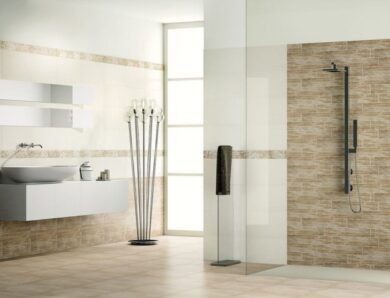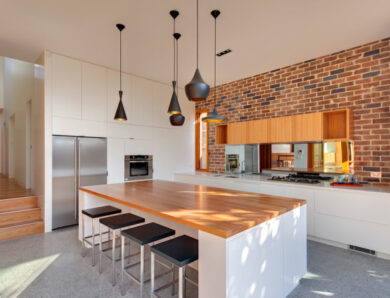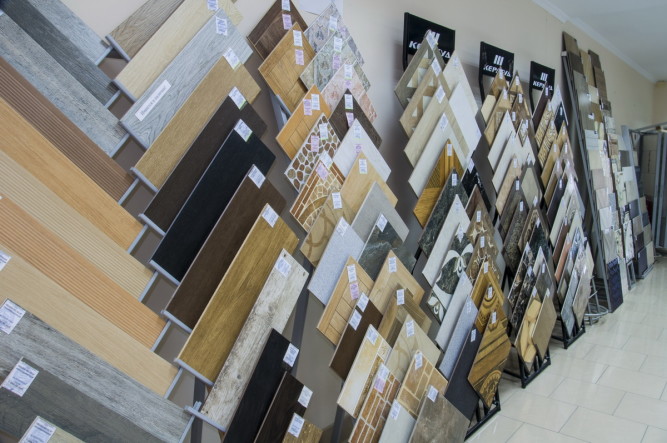
Composition and technical characteristics of ceramic tiles
Ceramic tile is a popular finishing material. This type of cladding is used when repairing a bathroom, kitchen, hallway, as well as for the treatment of street objects. To understand the features of ceramics of different types, let's analyze its composition and main indicators. The following characteristics are taken into account here, as water absorption, thermal conductivity, frost resistance, etc.. D. On the basis of these data the conclusion on expediency of use of a tile in these or those areas of repair is made.

When choosing, pay attention to the main indicators of the product
Composition and method of manufacture
Ceramics are made of charge mass, which includes the following components:
- kaolin;
- sand;
- quartz;
- mica;
- calcium oxides, iron and other minerals.
The ratio of materials, which form the composition of the product, as well as the quality of their connection determine the class of the finished tile and directly affect each coefficient of performance.
The principle of manufacture of such facing is as follows:
- The charge is crushed and carefully sifted, to prevent the ingress of unground particles.
- Then the composition is brought to homogeneity and placed in the oven, where under the influence of temperature mineral particles fuse.
- Press or high pressure give a high density of the product.
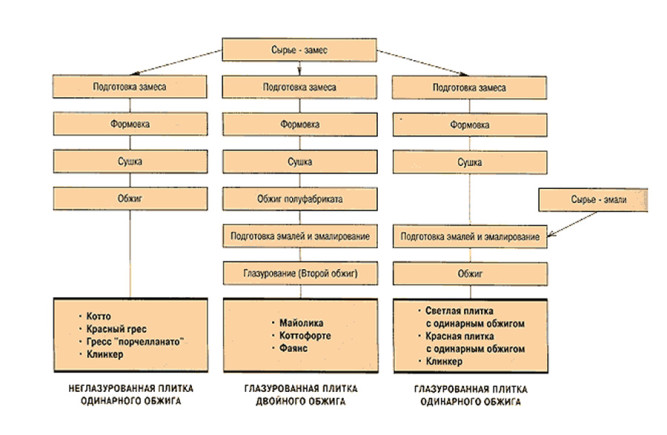
manufacturing methods
After cooling, formed tiles, are sent for further processing, where they acquire a decorative look. They are polished, covered with enamel, glaze and subject to other manipulations.
Advantages and disadvantages
The popularity of ceramics in the role of finishing is due ??a number of positive qualities. Ceramic tile properties are superior to most similar materials. The cost of a standard tile remains acceptable. Of course, the higher the grade of the tile, the more expensive it is, but its high service life pays off.
Advantages of ceramics:
- durability;
- strength;
- significant degree of wear resistance;
- moisture resistance;
- wide scope of application;
- hygiene;
- dielectric;
- Fire Security;
- environmental friendliness of raw materials;
- accessibility;
- wide range of forms, colors, etc.. d.
The specific coefficient of an indicator depends on the brand of material and compliance with the technology. It is important to make sure, that the charge or decorative layer does not contain toxic raw materials. To do this, check that the manufacturer has a certificate of compliance with safety criteria.
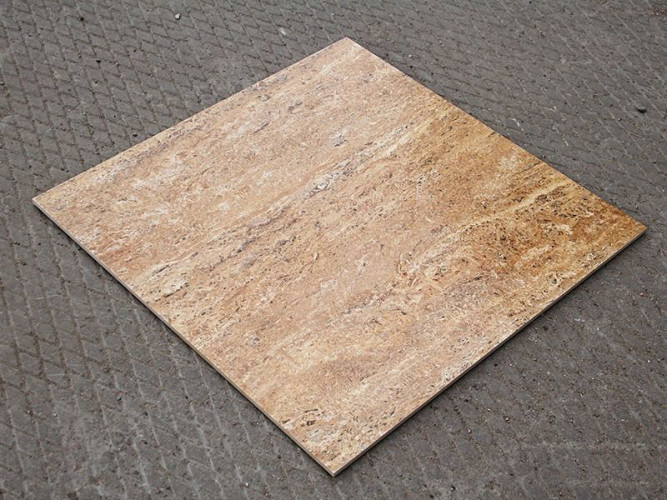
Ceramic tile has many advantages over other types of coatings
Of course, there are also disadvantages. Them, depending on specific conditions, include the following:
- complexity of installation work;
- high thermal conductivity;
- fragility at point influence;
- slipperiness;
- hardness;
- transmits sounds well.
Specifications
- The density of ceramic tiles. This is the porosity coefficient. Essentially, this is the number of gaps or air bubbles between the particles of the charge. The fewer of them, the higher the quality of ceramics.
- Class of wear resistance of a tile. The ability of the material to withstand external mechanical influences. The first category is not designed for heavy loads, but the fifth is a strong material. In residential buildings, public buildings, and intermediate surfaces are used on some street surfaces 2-4 classes.
- Water absorption. It is directly related to the porosity of the product, as well as external coating. For building tiles, this ratio is within 7%. And here, example, porcelain reduces it to zero.
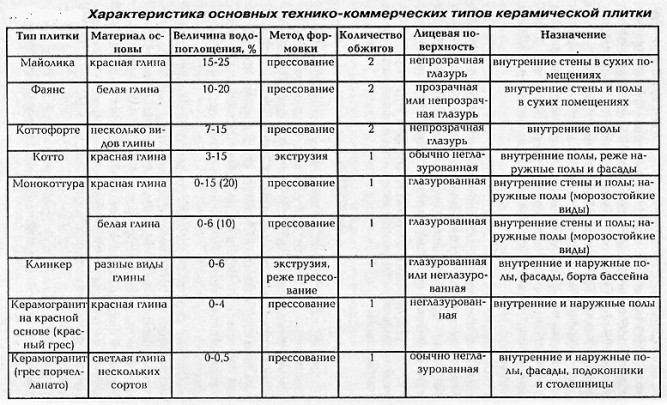
Basic technical indicators
Keep in mind, that the characteristics of wall and floor tiles differ. The requirements for flooring are more stringent and thorough, as it is affected by heavy loads.
Additional quality indicators
- Chemical endurance. Each class of tiles, selected by this criterion, differs in the degree of resistance to potent substances. The standard composition of the tile does not react with a large number of household chemicals. Auxiliary additives are introduced into the charge to resist strong reagents. This type of ceramics is used mainly in the treatment of industrial premises and laboratories.
- Thermal conductivity. The coefficient of this indicator is often decisive in the choice of material for a private home. In most types of tiles, the thermal conductivity is quite high. This means, that such a surface quickly absorbs the ambient temperature. That is why tiled floors are very cold. When installing a heating system, the tile will instantly become warm, but just as quickly and cool down.
- Frost resistance. This factor is directly affected by the water absorption of the material. The less time and the lower the absorption, the better the tile. Frost-resistant finishing class is used in outdoor work. This coating can withstand a huge number of cycles of freezing and thawing without changing the structure.
- Resistance to high temperatures and thermal shock. This criterion is related to thermal conductivity. Quality product withstands sudden changes in temperature. Refractory tile is used in cladding stoves and fireplaces.
The described properties of a tile are specified on a label of products. Each characteristic has a designation.
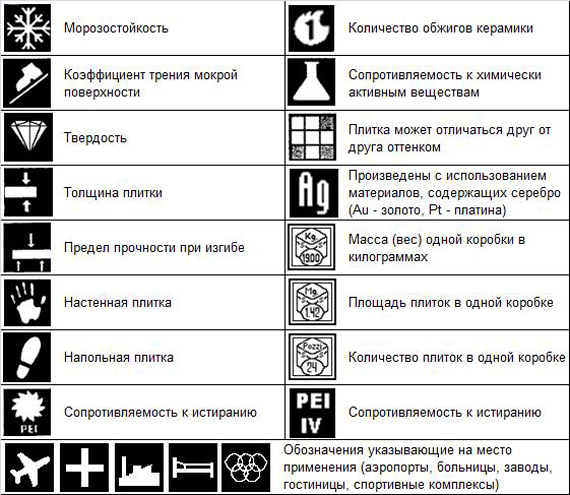
Symbols in the label
If you do not have special requirements for coverage, it is possible to be limited to such indicators, as strength, wear resistance and water absorption.
decorative design
In addition to the classification of tiles, there is a conditional distribution of materials by their appearance. The composition plays a significant role here, a, more precisely, top layer.
In the first place, note the different design of materials for floors and walls. This applies to the form, thickness and artistic composition of models. In addition, the floor covering is a very important indicator ??slipperiness, which affects the risk of injury coverage. Gloss is usually more slippery, unless it has a special treatment. Matte models do not guarantee 100% safety. Therefore it is better to select relief products or to put on a tile a special spraying.
The characteristics of the texture are important in the visual perception. There are not only gloss and matte, but also something in between - satin. As for the color palette, there are no restrictions today. Saturated black, delicate beige and classic white compete not only with all shades of rainbow colors, but also more complex decor. Tile imitates masonry, wood, laminate, textiles or leather. In wall compositions, drawing is especially popular, which looks like a panel, consisting of individual elements.
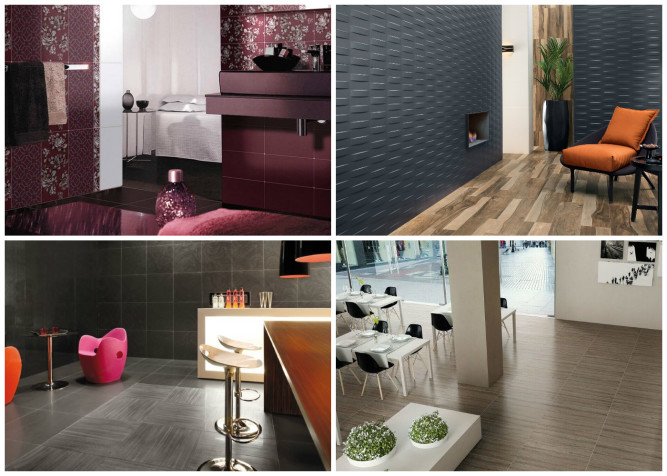
Tiles vary in surface texture and color
When choosing a finish, pay attention to the decorative, and on technical characteristics equally. Not to be mistaken, trust proven manufacturers with an unblemished reputation.

